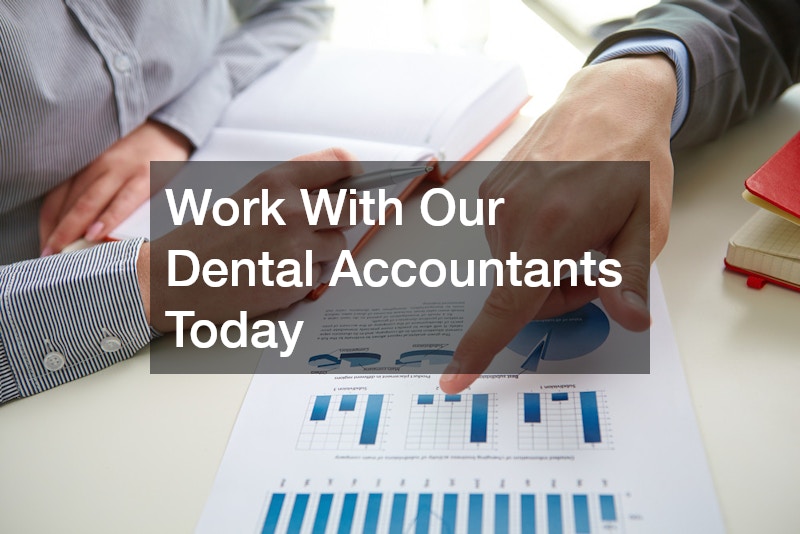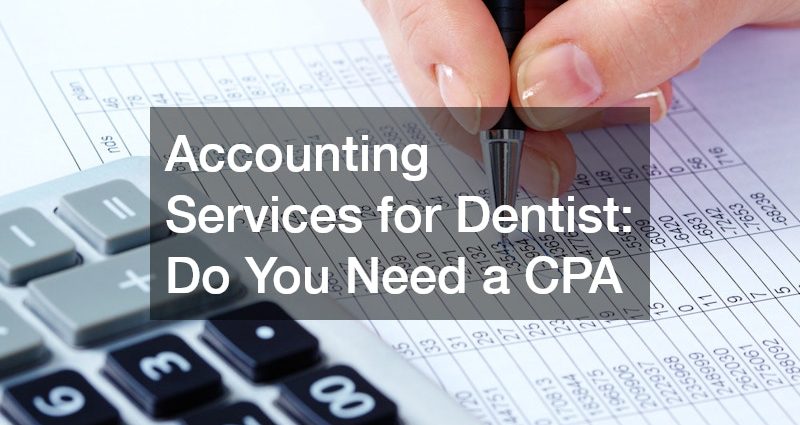
Running a successful dental practice involves far more than providing excellent patient care. Behind the scenes, managing finances effectively is critical to ensuring long-term growth and stability. This is where accounting services for dentists become essential. A Certified Public Accountant (CPA) can help dental practices navigate complex financial regulations, optimize profitability, and make informed strategic decisions. In this article, we’ll explore why dental practices need specialized accounting services, how a CPA adds value, the costs involved, and tips for selecting the right CPA for your practice.
Why Do Dentists Need Specialized Accounting Services?
Understanding Dental Industry-Specific Financial Needs
Dental practices have unique financial requirements that differ from other small businesses. From managing patient billing and insurance claims to tracking equipment investments, the financial landscape of a dental office is highly specialized. General accounting services may not address these specific needs, which is why tailored accounting services for dentists are invaluable.
Tax Planning and Compliance for Dental Practices
Dental practices face various tax obligations, including income tax, payroll tax, and state-specific regulations. CPAs specializing in dental accounting can help practices stay compliant, identify eligible deductions, and develop tax strategies that minimize liabilities while adhering to legal requirements.
Budget Management and Cash Flow Analysis
Proper cash flow management is crucial for dental offices to cover expenses such as staff salaries, office rent, and equipment maintenance. Accounting services for dentists include monitoring cash flow, forecasting financial needs, and helping practice owners create realistic budgets that prevent shortfalls and maintain smooth operations.
Financial Reporting and Audit Preparation
Accurate financial reporting is essential for internal decision-making and for external stakeholders such as banks or investors. CPAs prepare detailed reports that track profitability, expenses, and growth metrics. Additionally, they assist in audit preparation, ensuring all financial records are accurate, organized, and compliant with regulations.
Customized Financial Strategies for Growth
Beyond day-to-day bookkeeping, CPAs can provide strategic guidance to help dental practices expand. This may involve analyzing opportunities for new service lines, optimizing overhead costs, or planning for equipment upgrades. Such proactive financial planning enables dentists to make informed decisions that support long-term success.
How Can a CPA Add Value to Your Dental Practice?
Expertise in Dental Industry Regulations
A CPA with experience in dental accounting understands the specific regulatory environment affecting dental practices. They can ensure compliance with federal, state, and local laws, helping practices avoid costly penalties or fines.
Identifying and Capitalizing on Tax Deductions
Dental offices often qualify for numerous tax deductions, from equipment depreciation to continuing education expenses. CPAs identify these opportunities, ensuring that practices take full advantage of potential savings.
Streamlining Financial Operations
By implementing best practices for financial management, CPAs streamline operations, reduce errors, and save time for dental staff. This allows dentists to focus on patient care rather than worrying about bookkeeping and payroll.
Providing Insightful Financial Forecasts and Projections
CPAs analyze financial data to provide forecasts, cash flow projections, and scenario planning. These insights help practice owners anticipate challenges, make informed investments, and plan for growth or expansion.
Enhancing Profitability and Efficiency
Ultimately, a CPA’s expertise can directly impact a dental practice’s bottom line. By optimizing financial operations, identifying cost-saving opportunities, and guiding strategic decisions, CPAs help practices maximize profitability and overall efficiency.
What Is the Cost of Hiring a CPA for a Dental Practice?
Understanding Common CPA Fee Structures
CPAs may charge hourly rates, fixed monthly fees, or a combination depending on the services required. Hourly rates typically cover consultations or complex tax work, while monthly retainer fees often include ongoing bookkeeping, payroll, and financial reporting.
Estimating Costs Based on Practice Size
The size and complexity of a dental practice impact CPA fees. A solo practice may pay less for basic accounting services than a multi-location dental group that requires comprehensive financial management.
Evaluating the Return on Investment
While hiring a CPA represents a cost, the value often outweighs the expense. Proper tax planning, improved financial management, and strategic guidance can save practices thousands of dollars annually and support sustainable growth.
Comparing In-House vs. Outsourced CPA Services
Some dental offices may consider hiring a full-time in-house accountant. However, outsourcing accounting services for dentists often proves more cost-effective, as it provides access to specialized expertise without the expense of a full-time employee.
Navigating Hidden Costs and Fees
Before engaging a CPA, it’s important to clarify potential hidden fees, such as charges for additional consultations, audit assistance, or specialized reporting. Clear agreements help prevent unexpected costs.
How to Choose the Right CPA for Your Dental Practice?
Assessing CPA Experience in the Dental Industry
Look for a CPA with proven experience working with dental practices. Familiarity with industry-specific financial challenges ensures a smoother partnership and more effective strategies.
Checking Credentials and Licensing
Verify that your CPA is licensed, in good standing, and up to date on continuing education. Credentials indicate professionalism and expertise.
Evaluating References and Client Testimonials
Ask for references from other dental practices to gauge satisfaction and performance. Client testimonials provide insight into reliability, communication, and results.
Understanding the Scope of Services Offered
Ensure the CPA offers the services your practice needs, from bookkeeping and tax planning to strategic financial consulting. Clarify which tasks are included and any additional fees for specialized services.
Scheduling a Consultation to Gauge Fit
A consultation allows you to assess communication style, responsiveness, and compatibility. A CPA who understands your goals and communicates clearly can become a trusted financial partner.
Accounting services for dentists are essential for maintaining a financially healthy and thriving practice. From tax planning and budget management to strategic growth guidance, a CPA provides invaluable expertise tailored to the unique needs of dental practices. By carefully evaluating costs, credentials, and experience, dentists can select the right CPA to optimize operations, enhance profitability, and secure long-term success.


